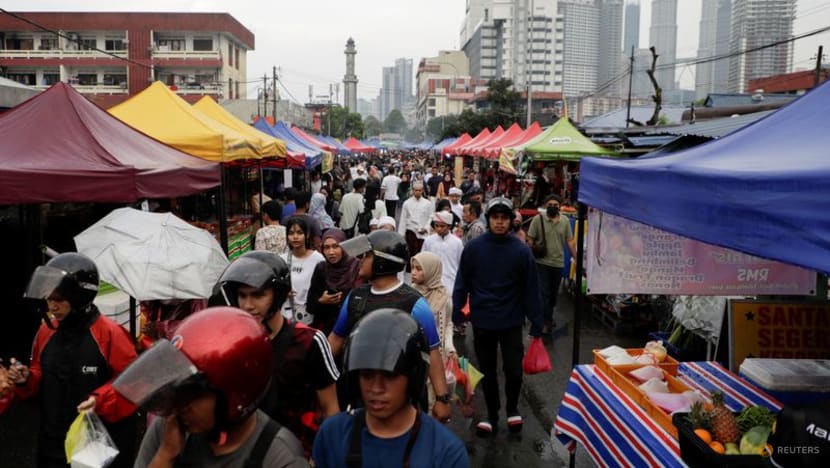Unsold, leftover food at Ramadan bazaars in Malaysia raises concerns over wastage
If nothing is done to reduce wastage, Malaysia would waste about 15 to 20 per cent more food during Ramadan compared with other months, according to a government agency.

Muslims shop for food to break their fast at a bazaar during the holy month of Ramadan in Kuala Lumpur, Malaysia April 15, 2023. (FILE PHOTO: REUTERS/Hasnoor Hussain)

This audio is generated by an AI tool.
KUALA LUMPUR: Tonnes of excess food left unsold at Ramadan bazaars in Malaysia have raised concerns over food wastage in the country.
These bazaars, popular among locals and tourists, bustle with life during the holy month of Ramadan. Vendors prepare and sell a vibrant array of delicacies and traditional dishes daily.
But amidst the festive atmosphere lies the hidden challenge of food waste.
INCREASE IN WASTE DURING FASTING MONTH
If nothing is done to reduce wastage, Malaysia would waste around 75,000 tonnes of food during Ramadan, or about 15 to 20 per cent more compared to other months, according to the Solid Waste Management and Public Cleansing Corporation last year.
The wastage pollutes the environment, and also raises concerns about food security and ethical consumption, said observers.
Various organisations have since stepped up to address the problem of Ramadan food waste.
Volunteers from the MySaveFood programme, for instance, collect surplus food from more than 130 bazaars across the country, organise it and then distribute it to the underprivileged.
“If we don't save the excess food, it will be wasted and end up in landfills,” said MySaveFood deputy director Aniadila Kamaruddin.
“The programme has had a significant impact on the lower-income recipients, who are touched by the donations as many struggle to afford the food due to high prices.”
Since MySaveFood was launched in 2016, it has made great strides. Last year, it saved 20 tonnes of food from these bazaars.
COLLECTING FOOD FOR THE NEEDY
In the first three weeks of this year’s Ramadan, MySaveFood has already saved more than 54 tonnes of food, worth around US$126,000.
The programme, which now has more than 2,000 volunteers, urged bazaar-goers to plan ahead and buy only what they need.
Vendors can also reduce waste by adjusting the quantities they sell and preserving the food sustainably, it added.
Volunteer Adamsyam Daniel said he wanted to give back to the community by helping to salvage bazaar food for charity purposes.
“Right now, I feel we have two main problems in our daily lives, which are excess food and many who are in hunger,” he added.
“We want to raise awareness among all communities about these food issues.”
Some organisations are also mobilising their staff and volunteers to visit Ramadan bazaars to hand out flyers on overbuying and wasting food.
Despite the challenges, the collective efforts of various stakeholders are making a difference in tackling the food waste issue in the country, said observers.
They noted that by promoting a culture of responsible consumption and sustainable practices, Malaysia’s Ramadan bazaars can continue to be a symbol of community spirit while reducing their environmental footprint.

















